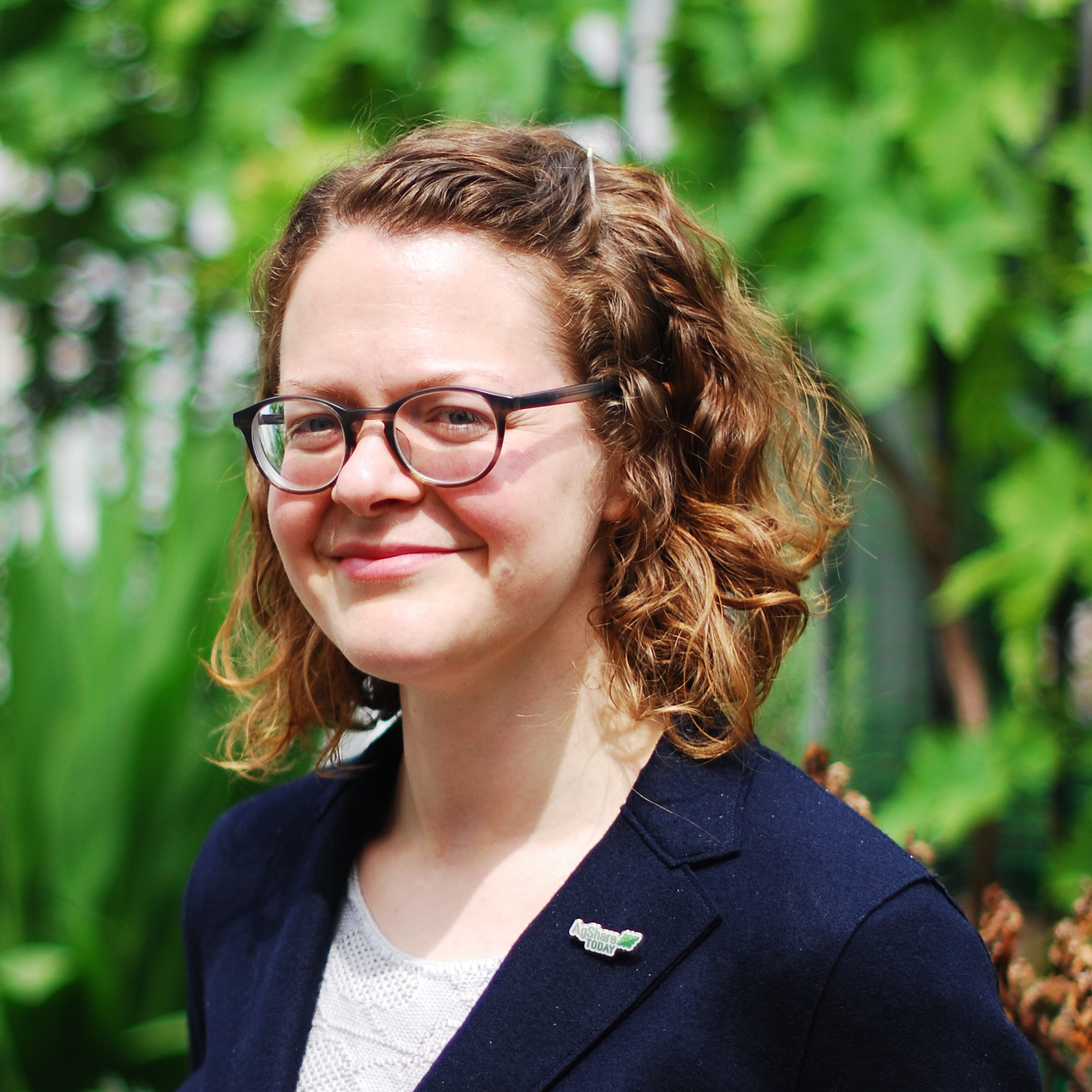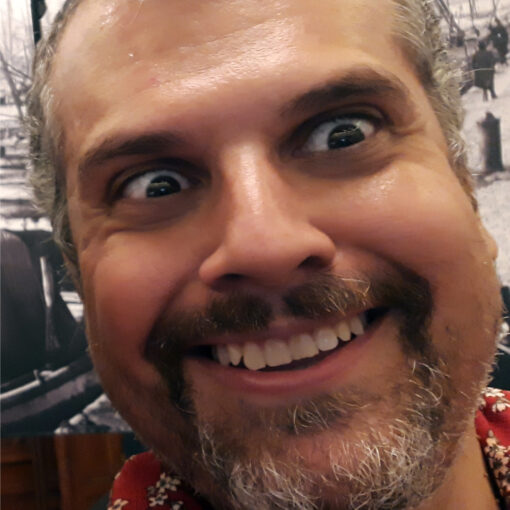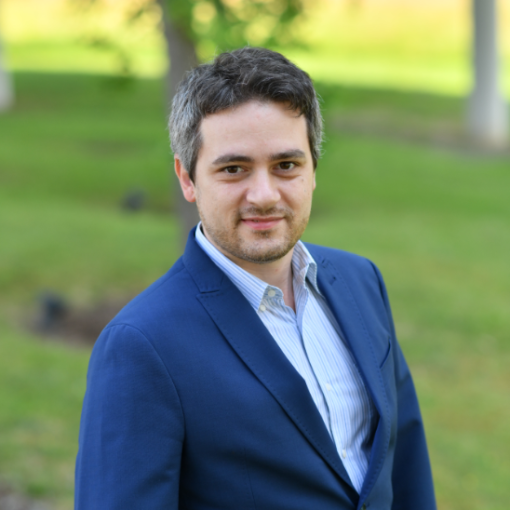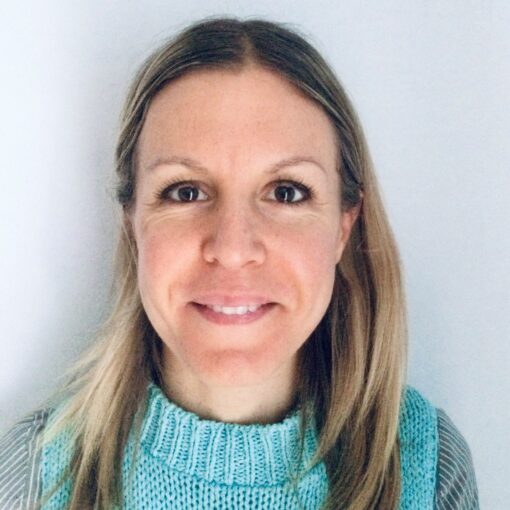Ph.D. in Pathology and Cellular Biology, University of Montreal, Canada (2015)
| Head of Training and Communications/Knowledge Management Consultant | |
|---|---|
| Scriptoria Ltd | |
Year entered into a non-academic position: 2019
Job highlight: Spending a week in the Ivory Coast in my first month of work in the new position working with researchers from across Africa in a bilingual “pop-up” office to support them on everything from data analysis to advocacy strategies to turn research into policy
My research training set me up to… use my problem-solving skills to take on new challenges with confidence
Left academia after: 4 years of postdoctoral work
What’s your background?
I was always interested in biological sciences, from the environment to animals to the mysteries of the brain. I initially thought I might go into a career in medicine, so I volunteered in outpatient behavioural stabilisation units and hospitals and completed my BSc thesis in clinical research with survivors of traumatic brain injury. However, some exciting experimental neuroscience courses in my undergraduate degree steered me into fundamental research in neuroscience instead. After completing my MSc and PhD in neuroscience studying spinal cord development in animal models in Canada, I moved to the Max Planck Institute of Neurobiology in Munich, where I spent a fantastic four years researching the coordination of sensation and movement in the vertebrate brain.
Why did you move away from academia?
The reason that I was drawn to neuroscience research initially is because I believe that understanding the brain is one of the most exciting questions out there. Despite my continued fascination with the brain, I found myself distracted by the ever-increasing social and environmental issues in the world.
I realised that my priorities had shifted and that the most pressing issues, and thus the ones I want to work on, are the huge global challenges relating to things like food security, health and the environment. I also realised that I wanted to get out of the academic bubble and more directly support the people tackling this kind of important work across the globe.
Is there anything you miss about academia?
I miss my wonderful and brilliant colleagues a lot! I thought that I would miss the creative freedom, but my job as a consultant is fantastically varied, challenging and innovative. The thrill of discovery in science is something special that I miss, but I have plenty of other intellectual rewards and personal satisfaction in my new career.
How did you get this job? Did you face any challenges when considering a move away from academia or applying for the role?
I simply applied! But not before I had thought carefully about what I wanted to do, how I wanted to grow my career, and what my values were in terms of the kind of company I would consider working for. Luckily Scriptoria was founded by two brilliant ex-academics that really value the kind of skills built through research experience, such as critical thinking, fast learning, writing and communication skills, and problem solving. They wanted to take me on because they saw and valued these skills in me, though at the same time they were willing to upskill me in other areas. I was also interested in this company because of their personal and professional values and the room for me to advance in my career. I would say the greatest challenge was the attitude of some colleagues in my department/institute that leaving academia is a failure. Thankfully, I had tremendous support from those closest to me, plus I had the confidence that I was actively choosing to do something different and meaningful with my career.
Did you think you had the skills required for your current position before you started? Were you right?
I knew that I had many of the right skills but certainly not all of them – if I was hired, I would learn a tremendous amount and keep growing in both a personal and professional capacity. The funny thing is that in many ways it was the perfect job for me for several small reasons. For example, amongst other things, the job called for someone who was fluent in English and French, and who had travelled/worked in sub-Saharan Africa. I met these criteria because I gained fluency in French during my Ph.D. in Montreal and I had done a four-month rock climbing trip mostly in sub-Saharan Africa. I’m glad that I had the confidence to apply for the position despite not having all the listed skills – I have already learned so much and new opportunities keep arising.
How did your PhD prepare you for your current job? For example, what were the transferable skills that you developed during your PhD that are most relevant to your current job?
My research experience gave me great all-round training in how to tackle complex problems. Many Ph.D. students focus on mastering technical skills, but these are actually some of the least transferable skills! I have always taken the approach that it’s important to diversify, not just in terms of techniques but also in what you do with your time. I said yes to every opportunity and each experience helped in some way.
Currently, I’m helping researchers to communicate their results in various forms, such as publications, grant proposals, impact reports and policy briefs – for this, my experience in writing and reviewing articles for peer-reviewed journals, applying for fellowships and grants, and communicating to lay audiences through blogs and public talks gave me an excellent foundation in scientific communications. Also critical has been my ability to work flexibly – whether independently, in teams, or in international and highly interdisciplinary collaborations.
Did you have any preconceptions about your sector that proved to be wrong?
I underestimated just how innovative the work would be. At Scriptoria, we are constantly trying new things and innovating on our current methods. In many ways, it is much more progressive and exploratory than a research setting. I think that despite the creativity inherent in research, the constraints on funding combined with the narrowness of a single researcher’s focus can result in some degree of stagnation in academia that would not be sustainable in business.
Can you describe a typical week in your job?
That’s a tough question. As head of training, I might be away for one day of the week somewhere in the UK working with researchers to develop grant proposals or with healthcare staff to work on their communication skills for non-specialists. As a communications and knowledge management consultant, I devote some days each week to each of the various current projects that I am managing or to which I am contributing. Another half-day might be spent out of the office at a conference, networking event, or other client meeting. I also contribute to internal projects and management in the company such as writing bids. This past year, I have spent weeks providing consulting or training support in countries including the Ivory Coast, Ethiopia, Nigeria, India, and Ghana.
What’s the workplace culture like?
Since we work in sustainable development, the company attracts caring, thoughtful people with a social conscience. Lots of environmentally-minded people who love to cycle, read books, and volunteer! We’re also quite international, with staff coming from Brazil, Egypt, Mauritius, Bulgaria, Nepal, South Africa, Canada and the US to complement the Brits. Needless to say, it is a great place to work. I also get to work with lots of other people as a trainer and consultant, which is one of the things I love about this job.
Do people with a PhD frequently get hired in the company/sector?
While not everyone at the company has a PhD, Scriptoria is unusual for a consulting company in that they want to have staff who have a deep technical understanding of subjects but are also great communicators. For this reason, Scriptoria hires people with PhDs more frequently than most other companies in this sector. When we work with senior researchers who are world leaders in their field, we want to be able to fully understand the research problem and also translate the complex findings into a message that can be understood and put into action by the relevant stakeholders.
What are your favourite parts of your job?
I love the travel, working with so many different people and projects, and the creative brainstorming and problem solving.
What are your reflections on your career path?
I’ve always followed two tenets regarding my career: enjoy what you’re doing and follow your intuition. Regarding the first, my career path might seem strange to an outsider: twelve years of neuroscience research with a switch to sustainable development consulting. However, to me it’s been a path of following what I want to do. Regarding the second tenet, I think that working with good people is just as important as the work itself.
Having supportive colleagues, being in an environment where you can grow and develop, having a good work-life balance…these are all things that you need to consider carefully when choosing any job because they make all the difference as to whether or not you will thrive in your career. If a job doesn’t feel right, even though it looks good on paper, don’t take it. My intuition guided me well through academia where I had fantastic mentors, supervisors, and colleagues.
My current company has a “nice people only” policy that sets it apart from many other consulting firms and encourages personal and professional growth. Following these simple rules, I know that I could have many different career paths and find success and happiness in each.
Do you have any advice for current graduate students and postdocs considering a career outside of academia?
I would encourage people to try something really different during or after their PhD, if only a short internship or job in a different sector/subject than their PhD. I think that many people are hesitant to leave academia, even for a short period, because there’s so much pressure on researchers to keep producing. However, the experience gained from even a short experience in a different setting is really valuable and might lead you down new and unexpected paths.
Can you recommend any relevant resources, organisations or events that might help somebody new to the sector find out more about it?
- Researching.io is a platform that connects early-career researchers to people who have left academia to pursue other careers (as well as companies who want to hire PhDs)
- There are lots of interesting sustainable development conferences (e.g. AidEx) that you could attend to network and meet people in the sector
- Lots of jobs in sustainable development and consulting are posted on Twitter and LinkedIn – start following the organisations/companies that work in the area in which you’re interested
- Make sure you know how to write a non-academic CV to highlight your transferable skills – see open access guidance plus samples of ‘traditional’ and ‘skills-based’ CVs under ‘standard CVs’ from Oxford University Careers Service here https://www.careers.ox.ac.uk/cvs/. You may also find some step-by-step guidance useful, for example: https://intranet.birmingham.ac.uk/as/employability/careers/documents/public/Non-ac-CVs.pdf
 Scriptoria is an award-winning consulting company specializing in knowledge and data management for research organizations, sustainable development programs and donors. Scriptoria has been providing research services, and knowledge- and data-management services to the international development sector for almost 20 years.
Scriptoria is an award-winning consulting company specializing in knowledge and data management for research organizations, sustainable development programs and donors. Scriptoria has been providing research services, and knowledge- and data-management services to the international development sector for almost 20 years.
Our services encompass both “hard” data-related services (such as database design, data management and data visualization), and “soft” knowledge management services (such as human-focused research to improve data management and the effectiveness of organizations working within the field of sustainable development). This mix of skills means that Scriptoria’s team not only has strong expertise in information technology and data-related services, but also in desk-based research studies, facilitated (face-to-face) research and user engagement.
The areas of international development in which Scriptoria works are wide ranging, which means that our team not only knows how to handle data, but also why that data is important in the contexts within which we work. Examples of the areas of focus covered by the programs for which we work include Agriculture, Health, Construction and Infrastructure, Education, Pests and Diseases, Communications, Food Security, Fisheries, Forestry and Agroforestry, and Water and Sanitation.





